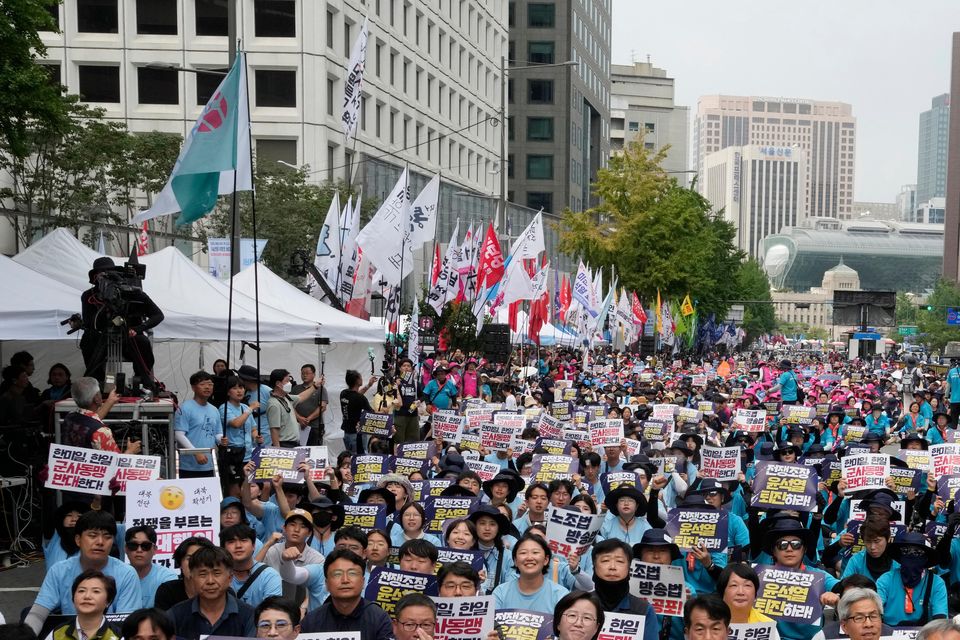South Korea and the United States will begin their annual joint military exercises next week with a focus on improving combined capabilities to deter and defend against growing North Korean nuclear threats, the allies said on Monday.
The drills could trigger a belligerent response from North Korea, which portrays them as invasion rehearsals and has used the allies’ military cooperation as a pretext to advance the development of nuclear weapons and missile systems.
South Korean and US military officials said this year’s Ulchi Freedom Shield exercise, scheduled for August 19 to 29, will include computer-simulated exercises designed to enhance readiness against such threats as missiles, GPS jamming and cyberattacks, as well as concurrent field manoeuvres and live-fire exercises.
The allies in particular aim to “further strengthen (their) capability and posture to deter and defend against weapons of mass destruction”, South Korea’s Joint Chiefs of Staff said in a statement.
South Korean protesters stage a rally opposing the joint military exercises between the US and South Korea in Seoul on Saturday (Ahn Young-Joon/AP)
The South Korean and US militaries did not confirm the number of troops participating in the summertime drills, which typically involve thousands.
Animosity on the Korean Peninsula is high as North Korean leader Kim Jong Un continues to use Russia’s war on Ukraine as a window to accelerate weapons development while issuing verbal threats of nuclear conflict toward Washington and Seoul.
In response, South Korea, the United States and Japan have been expanding their combined military exercises and sharpening their nuclear deterrence strategies built around US strategic assets.
During last year’s Ulchi Freedom Shield exercises, North Korea conducted ballistic missile tests that it described as simulating “scorched earth” nuclear strikes on South Korean targets.
The North has also flown thousands of balloons carrying trash toward the South in recent weeks in a psychological warfare campaign that has further deteriorated relations between the war-divided rivals.
Trash from at least one of those balloons fell on the South Korean presidential compound last month, raising worries about the vulnerability of key South Korean facilities.
The balloon contained no dangerous material and no one was hurt, South Korea’s presidential security service said.
